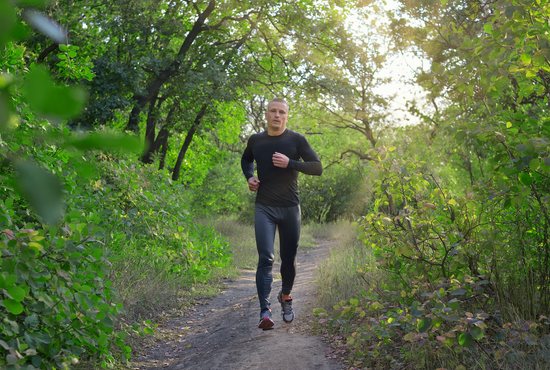
Q. I’ve recently been more and more interested in exercise and keeping fit. I am a husband and father and want to be able to play with my kids. You seem like someone who exercises. How do I know if I am placing too much emphasis on being physically fit and when have I crossed over into mere vanity?
A. I really appreciate this question. Not only is it a question that I return to for myself quite often, but I have been asked this by many people. I don’t want to give anything away, but I need to be up front with the disclaimer that the final answer will ultimately involve you monitoring your own behavior and interior disposition. There will not be a black and white “do this, don’t do that” answer.
But there are important cues to pay attention to.
First, Catholicism affirms the goodness of the body and the soul. While the body (as well as the soul) is subject to the wounds of the Fall, it retains an intrinsic goodness. St. John Paul II wrote, “The body, and it alone, is capable of making visible the invisible, the spiritual and the divine.” Your body is the “vehicle” by which you learn things, come into contact with this world, and know and express love. The body is the tool God used to redeem the world. It was precisely Jesus Christ’s willingness to live, suffer, die and rise in his body that has saved us.
At the same time, the body does not have absolute value. Athletic discipline can be a help toward virtue, but there are limitations.
First, there is the limitation of virtues that are developed in athletic training. I always find it interesting when people seem to automatically associate fitness with good character.
While there are many character-building elements involved in physical training (things like hard work, discipline, perseverance, resilience, etc.), there are just as many vices. We admire the athlete who has worked hard and demonstrated the “triumph of the human spirit” in competition, but athletic training can just as easily foster selfishness, ambition, and unhealthy comparison and competition.
Second, there are dangers inherent with any good thing. You wrote that you wanted to avoid vanity, which is good. On that point, I know plenty of people who seem vain about not exercising. They will boast of this as if it were an accomplishment to sit on the couch. Vanity can creep in regardless of what we choose to do (or not do). In addition, athletes can be prone to far more serious temptations: identity and idolatry.
We have a tendency to define ourselves by our “wins” or our “weaknesses.” I have met many athletes who have not merely given their thoughts over to vanity, but they have associated their worth and their identity with their fitness level. I see this all of the time with our college athletes. For each of them, the day comes when they have their last game, their last race or their last performance. And suddenly, they “used to be.” They “used to be” a baseball player. They “used to be” a cross-country runner. A lot of our athletes go through a mini-identity crisis once their time competing at a certain level has ended. This is a sign that something has gotten out of balance.
Speaking of balance, the temptation to idolatry is always present among really good things. Athletics and physical training are really good things. But athletes will have to watch to make sure that God alone remains the Lord of their lives.
Third, we have limited time in this life. There are so many positive benefits to physical exercise, including being able to play with your kids. Mental clarity and alertness can come with regular exercise. In our over-distracted culture, the ability to be alone with one’s thoughts while on a walk or a run can almost be a daily retreat. Exercise is often time well spent.
I invite you to see it in that light: You are “spending time.” I believe that physical exercise has more inherent value than most of the things we Americans do with our time, but there will always be a point of diminishing returns.
I find a lot of value in the perspective of St. Francis of Assisi. He called his body “Brother Ass,” as in a donkey. He did not despise it. He valued his body. His body could defy his will, but he trained it to obey him. St. Francis was aware that “Brother Ass” could revolt against him and get out of control, so he learned to master it. He fed it and trained it as a valuable part of himself. His sense of fitness was incredibly functional. That kind of functional fitness seems like a good thing to shoot for.
Father Schmitz is director of youth and young adult ministry for the Diocese of Duluth and chaplain of the Newman Center at the University of Minnesota Duluth. Reach him at fathermikeschmitz@gmail.com.



